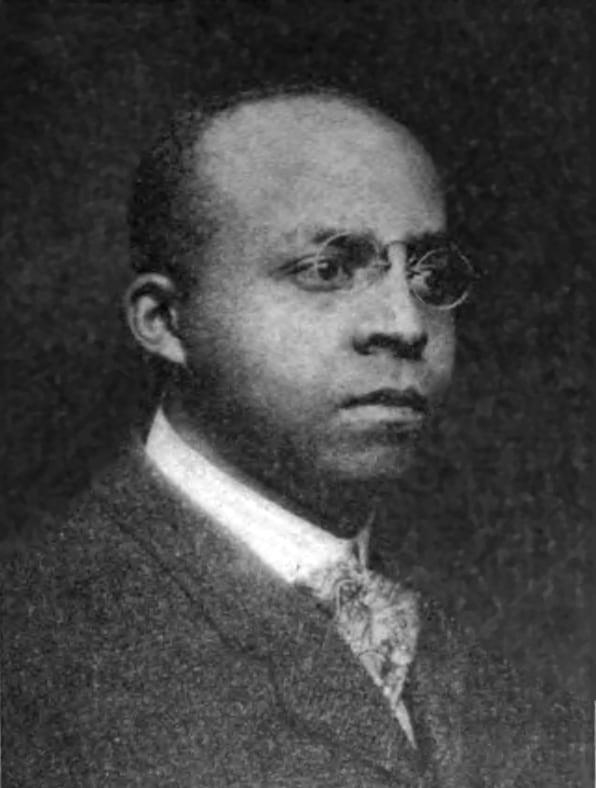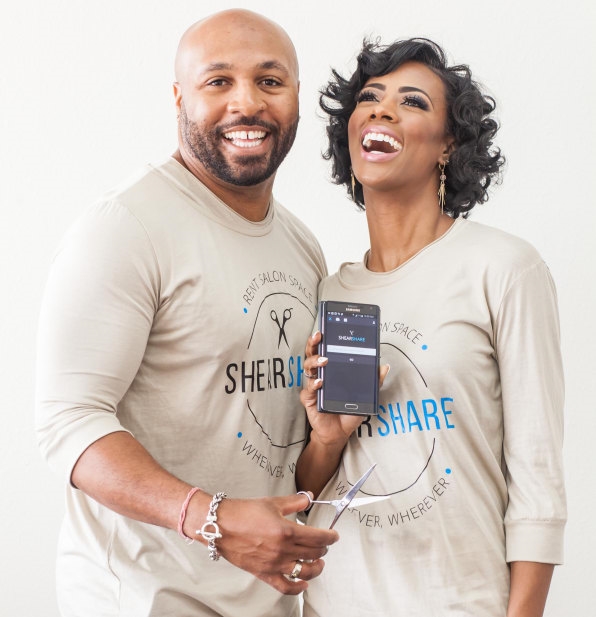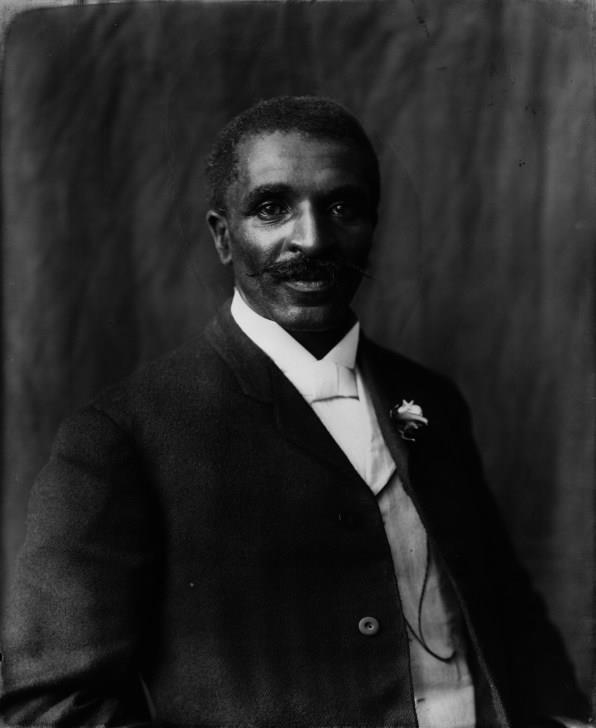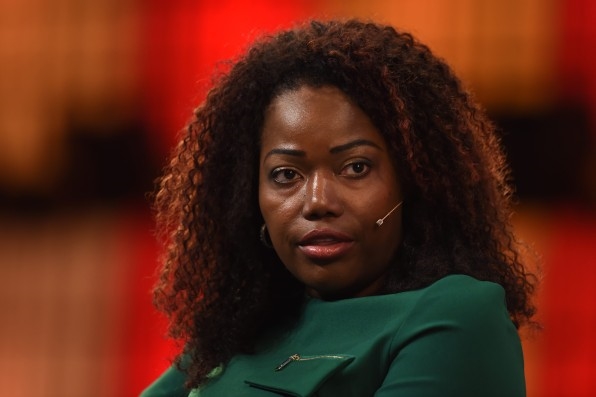Black History’s Hidden Figures That Inspired Today’s Innovators
Many of the products we consume today were made possible by the innovations, leadership, and inventions of black entrepreneurs, engineers, and scientists. Their groundbreaking work has made an impression on today’s black founders. As technology advances and industries are trying to disrupt the core of their businesses, a new generation is making innovations in housing, beauty, food, entertainment, and more. In honor of Black History Month in the U.S., here are a few iconic black innovators, and the current black entrepreneurs that they influenced.
Industry: Housing

History’s Hidden Figure: Phillip A. Payton, Jr.
In the early 1900s, Philip A. Payton, Jr., pulled together his earnings from his multiple jobs as a barber, handyman, and porter at a real estate firm to purchase office space in Harlem where he started managing buildings with black tenements. His endeavor grew into the Afro-American Realty Company in 1904. As Harlem developed with elevated train stations, Hammerstein opera house, and Columbia University opening its campus, many new apartments and rowhouses were still left vacant.
When landlords gave Payton the opportunity to manage their buildings, he decided to fill them up with black tenants and eventually started to purchase buildings of his own. Coined the “negro invasion” by the New York Times, Payton played a hand at disrupting “red lining” that kept black New Yorkers in certain neighborhoods (“red line” areas were those that were given a “D” rating by the Home Owners’ Loan Corporation because of a “threat of infiltration of foreign-born, negro, or lower grade population”).
The Afro-American Realty Company owned 20 apartment houses by 1907, bringing in more black tenants and changing the dynamics of Harlem. The affluent blacks that moved to Harlem due to the transformation of the neighborhood eventually manifested the Harlem Renaissance and made Harlem a place for black culture representative of the diaspora. His pioneering work earned him the nickname the “Father of Harlem.”
Today’s Innovator: Robert Reffkin
Without Payton paving the way, Robert Reffkin would never have been able to find the success he has in real estate tech. His company Compass has raised $775 million in funding since launching in 2012. The real estate app gives real estate agents data on residential real estate insights in real time to help them price their properties and market them to potential buyers, making the buying and selling process easier for brokers and their clients.
The company also offers other products including Collections, a home search tool that home buyers can use to keep track of the types of homes they like to help their agent find the perfect match for them. Compass currently has 55 offices in 14 different cities and regions, and plans to expand to 10 more markets by the end of 2018. Like Payton, Reffkin has a commitment to giving back to; he opened a charter school in the Bronx and founded a nonprofit, America Needs You (ANY), to help first-generation college students.
Industry: Beauty
History’s Hidden Figure: Madam C.J. Walker
The black hair business is annually a $4.2 billion dollar industry, according to a recent Nielsen report. But it all started with entrepreneur Madam C.J. Walker and her mentor, self-taught chemist Annie Turnbo Malone, in 1903. Walker’s hair care products changed the black hair care experience. After selling Malone’s products, Walker decided to create her own line of hair care that promotes hair growth. Walker’s Wonderful Hair Grower became an empire. After selling Wonderful Hair Grower from 1905 to 1910, she opened a beauty school and factory to expand her business endeavors where she trained over 40,000 “Walker Agents” who learned how to use and sell her products. The agent concept gave black women jobs and expanded her products’ reputation in the U.S., the Caribbean, and Central America.
Her success led her to be the first self-made female millionaire, and her early movements in black hair care have led to the hair care digital and tech revolution that is making it easier for beauticians and clients to do business and promote healthy hair.

Today’s Innovator: Courtney and Tye Caldwell
Salon owners around the world are keeping their shops full with the ShearShare app created by Courtney and Tye Caldwell. This app allows salon and barbershop owners to rent out their extra booths and chairs to licensed professionals around the world. The couple recently added a strategic partnership L’Oreal and Track and First American Payments to their product to help freelance cosmetologists and barbers manage pay stubs, tax savings accounts, and the filing of their business taxes. Recently, this beauty tech company won $100,000 in the Diversity & Inclusion Investment Challenge presented by Capital Factory. ShearShare currently operates in 375 cities and 11 countries.
Industry: Agriculture

History’s Hidden Figure: George Washington Carver
George Washington Carver changed the agricultural landscape in the U.S. His inventions helped create easier ways for us to farm our lands, and transformed how we consumed the products he developed from sweet potatoes and peanuts. His agricultural science led the way to the organic food boom we are experiencing now.
Carver spent 47 years teaching at Tuskegee University where he taught generations of black students farming techniques, including methods of crop rotation, alternative cash crops to cotton that improved the soil. Between 1915 and 1923, Carver discovered other ways to use peanuts, sweet potatoes, soybeans, and pecans. His soil consultation in the South helped cotton farmers improve their yields, and his experiments on crops helped develop over 300 products we use today, like flour, insulation, paper, soap, shaving cream, and skin lotion.
Today’s Innovator: Kellee James
Kellee James decided to tap into the $31 billion organic food industry after experiencing a horseback riding injury. She cofounded Mercaris to address the information gap between buyers, sellers, and farmers. According to the Mercaris website, the company solves two sets of problems. “First, we provide up-to-date, accurate information on market conditions for organic and non-GMO commodities. Second, our trading platform allows buyers and sellers to meet online and trade physical commodities.” Whole Foods was the company’s first customer for its Data Service Report that lets businesses know how much to charge or pay for organic products. James is one of only 14 African-American women in the U.S. who has raised more than $1 million in venture capital, with $3 million raised thus far.
Industry: Robotics
History’s Hidden Figure: Arthur Ulysses Craig
Robotics is transforming many industries, but Arthur Ulysses Craig’s work with electrical engineering helped pave the way for the advances we are seeing in tech. Craig, who joined as a faculty member in 1895, was named the first black electrical engineer. He helped install the university’s first lighting system.
Today’s Innovator: Julia Collins
Robots are now responsible for making pizza at the San Francisco restaurant Zume Pizza. Formerly of Shake Shack & founder of New York City restaurants the Cecil, Mexicue, and Murray’s Cheese Bar, Collins’s newest venture is Zume Pizza, a Bay Area-based upstart making healthier, more affordable pizza. With the help of four robots who work alongside humans (in a “co-bot” environment), Collins has found a way to improve efficiency in the workflow process by leaving the dough making to the robots. Collins and her cofounder, Alex Garden, raised $48 million in venture funding.
Industry: Computer Science

History’s Hidden Figure: Annie Easley
Annie Easley was a computer scientist for NASA who took on the role as a “human computer” from 1955 to 1977, doing mathematical computing by hand for researchers. But she knew she had to adapt to changes and learned how to use Fortran, SOAP and Centaur technology to become a computer programmer and rocket scientist.

Today’s Innovator: Mary Spio
Virtual reality experiences are growing (according to some estimates, the VR market will reach $15 billion by 2021). CEEK VR is a social VR hub for accessing entertainment, education, and branded experiences, founded by Mary Spio. CEEK VR is currently helping the Olympic athlete Ted-Jan Bloemen share his speed-skating experience in Pyeongchang, Korea. The company is also a leader in the digitizing the concert-going experience and have partnered with musicians Katy Perry, Snoop Dogg, and Lady Gaga to give fans the VR front-row seat. Spiro worked in the Air Force as an engineer and later helped NASA launch satellites to space.
Both women adapted to the involving world of technology and helped to create systems and products that advance their respective industries.
The work of black entrepreneurs, engineers and scientists in the early part of the 20th century that helped impact the way we consume, live, and work throughout the years has spawned a new generation of innovations that will enhance the U.S.’s future.
Correction: A previous version of this article misstated the number of cities that Compass operates in.
(39)














